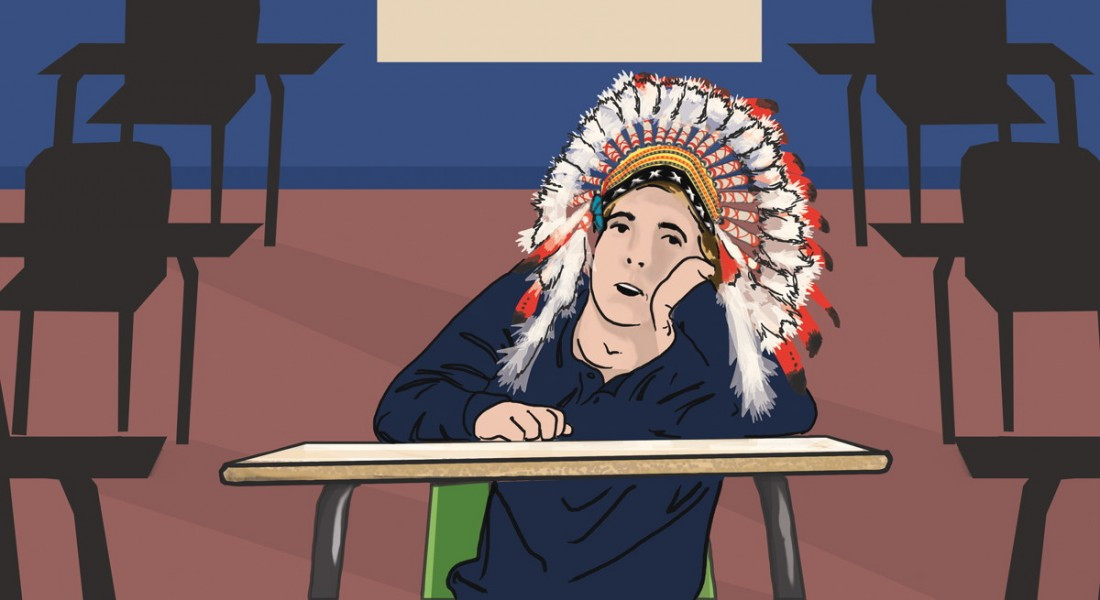Understanding Through Education
Mandatory Indigenous Studies classes the right move
Full disclosure: I am not First Nations, Métis, or Inuit. I’m as Irish/French-Canadian as they come. But that’s partially why I think the new mandatory graduation requirement being proposed by the University of Winnipeg Student’s Association (UWSA) and University of Winnipeg’s Aboriginal Students’ Council is so essential.
Given my experience thus far in Winnipeg’s educational systems, Indigenous peoples of Canada have been given far less time and attention than they deserve, in a blatant disregard of our history and present issues here in River City.
Going through schools here in Winnipeg, my understanding of Indigenous Peoples has been extremely limited. Indeed, what I learnt rarely went beyond a purely surface understanding. I learnt that les autochtones played a pivotal role in the initial settlement of Canada. I learnt that they were decimated and abused at the hands of the Canadian government, all in the name of cultural “progress.”
I had some understanding of residential schools, for which I am very grateful, as I was a part of one of the first groups in Canadian history to have that on the curriculum. But, many, many aspects of colonization and the Indigenous experience of Canadian history were left out in favour of the usual history of Western development.
I know that issues that have faced Indigenous peoples in the past - and continue to face today - may be perceived as too sensitive or complex for the average high school classroom. To my ears, this excuse rings hollow. Yes, the narrative of the Aboriginal chief leading the hard-working white settler across the West before peacefully accepting his piece of a reservation is a far easier one to teach than the brutal reality of colonization and residential schools.
But continuing to to fall back on this easy, fallacious story is incredibly disrespectful to our students and their abilities as learners, and to the Indigenous community and to our story as Winnipeggers.
However, changing our high school curricula and the ingrained biases within our education system will take time. Universities possess a unique ability to take quick action on radical issues when they want to.
In particular, I believe that the University of Winnipeg (U of W) is the perfect institution to take this step. We have the highest population of urban Aboriginal peoples in Canada, many of whom live downtown. The U of W has made a concerted effort to reach out to the community, offering programs such as the Model School at the Collegiate, various scholarships and awards, and summer enrichment programs for Inner City and Indigenous students at the Wii Chiiwaakanak Learning Centre.
While these efforts are admirable, instituting a mandatory degree requirement not only strengthens the university’s position within the community, it also demonstrates to all U of W students the importance of these issues to getting a well-rounded Canadian education.
Given the U of W’s history as an institution and its focus on activism and social justice, I believe that mandatory requirements are natural step for the administration to take.
Remember: Canada was founded by three, not two, nations. Its due time that the academic community at large recognized this in a formal institutionalized manner.
Adrienne is a second year Political Science student at the University of Winnipeg.
Published in Volume 69, Number 23 of The Uniter (March 4, 2015)







